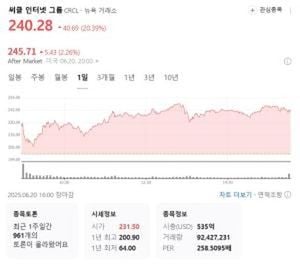Vietnam is rapidly emerging as a global hotspot for international tourism, ranking 7th in the world for growth in destination searches, according to data from Google Destination Insights. The surge in interest is attributed to a robust increase in international searches, which have risen by 10-25% since the beginning of 2025. Notably, Vietnam stands out as the only Southeast Asian destination in the top 10, surpassing its regional competitors such as the Philippines, Singapore, Thailand, Indonesia, and Malaysia.
The Vietnam National Authority of Tourism reported that the top cities attracting international tourists include Ho Chi Minh City, Hanoi, Da Nang, Phu Quoc, Nha Trang, Hoi An, Vung Tau, Da Lat, Phan Thiet, and Hue. Among these, Vung Tau and Ninh Binh have seen remarkable growth, with increases exceeding 75%. This remarkable performance underscores Vietnam's appeal as a travel destination.
Countries showing the most interest in visiting Vietnam include the United States, India, Australia, Japan, Singapore, South Korea, the United Kingdom, Taiwan, Malaysia, and Hong Kong. The increasing popularity of Vietnam as a travel destination can be attributed to its diverse and attractive tourism offerings, which range from cultural and nature tourism to beach resorts and urban experiences. Additionally, new products such as agricultural tourism, health care, and sports tourism are gaining traction among international visitors.
Investment in tourism infrastructure has also played a crucial role in enhancing Vietnam's appeal. The government has been steadily modernizing and expanding transportation networks, including air, road, and sea links, which facilitate easier access for international travelers. Furthermore, the expansion of direct flight routes connecting major cities worldwide to Vietnam has greatly improved accessibility.
Another significant factor contributing to Vietnam's rising status as a tourist destination is its increasingly liberal visa and immigration policies. The Vietnam National Authority of Tourism has noted that the ease of obtaining visas is a key attraction for international visitors. The country has implemented measures to simplify visa processes, which have been well-received by foreign travelers.
According to Hoang Nhan Chinh, Secretary General of the Tourism Advisory Board (TAB), the decision to waive visas for several countries, including the United Kingdom, France, Germany, Spain, and Italy since 2016, has resulted in a 10.1% increase in tourist arrivals. In 2023, Vietnam extended visa exemptions and increased the duration of stays from 15 to 45 days for 13 countries, while also introducing an electronic visa system that allows stays of up to 90 days for all nationalities. This has led to a significant uptick in international tourist arrivals.
In 2024, Vietnam welcomed approximately 17.6 million international visitors, recovering nearly 98% of pre-pandemic levels from 2019. This year, the tourism industry aims to attract 22-23 million international visitors, contributing to the government's GDP growth target of 8% for 2025. The first four months of 2025 already saw over 7.67 million international visitors, marking a 23% increase compared to the same period last year.
The Vietnam National Authority of Tourism is actively promoting the country as a travel destination through various marketing campaigns, particularly in key markets. Currently, they are conducting a market launch program to introduce Vietnamese tourism in France, Italy, and Switzerland from May 3 to May 14, 2025.
Experts believe that the combination of Vietnam's unique cultural heritage, stunning natural landscapes, and a wide range of tourism products have made it a favored destination for international travelers. The country's stable security situation is also a major factor for tourists prioritizing safety during their travels.
As Vietnam continues to enhance its tourism offerings and infrastructure, the outlook for the industry remains positive. The combination of effective government policies, strategic marketing initiatives, and an increasing number of international flights positions Vietnam favorably in the global tourism market.
In conclusion, Vietnam's rise in the global tourism rankings reflects its growing appeal and the successful implementation of policies that enhance its attractiveness to international visitors. With ongoing efforts to improve infrastructure and promote its diverse tourism products, Vietnam is poised to solidify its place as a leading destination in the coming years.





